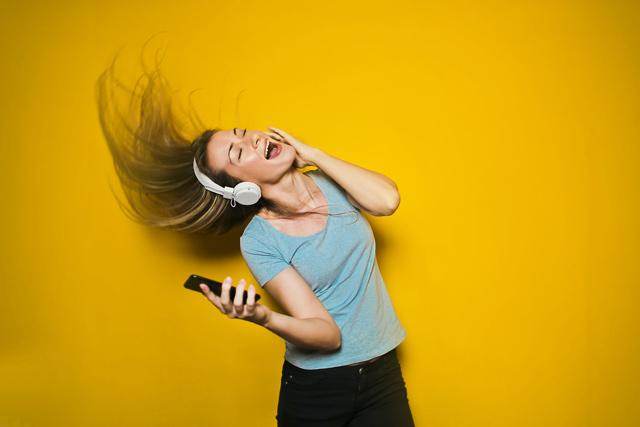- Mix
- Sun-2021-03-21 | 02:57 pm

Nayrouz News Agency :
Audio stimulates our brains more powerfully than video, and slots neatly into our new patterns of voracious cultural consumption — making this a revolutionary time for aural entertainment.
When Daniel Richardson, an experimental psychologist at University College London, wanted to compare the impact of audio and video on our brains, he turned for help to Hannibal Lecter and the people who chopped off Ned Stark’s head.
He wired up students and got them to watch classic scenes from "Silence of the Lambs” and "Game of Thrones” (the aforementioned decapitation), and then compared their reactions when they listened to the same scenes from the audio book versions.
He found a contradiction: the students reported a stronger emotional response to the videos, but their bodies suggested otherwise.
"With audio, body temperature was higher, heart rate went up and down more, more electro-dermal activity which shows bodily arousal. Basically, their brains were churning over more and it was showing up in their physiology.”
Watching video is often a passive experience, Richardson said: "With Game of Thrones, HBO is doing the imaginative work for you. They’ve been to Croatia and hired a cast of thousands and so on, and you just have to bask in it. In an audio version, you have to generate all of that in your mind.”
Revealing
The assumption is that this makes the experience more vivid — and perhaps more addictive.
Certainly, more and more people are embracing audio: 80 million Americans are now weekly podcast listeners, according to the latest study from Edison Research, up 16 per cent on last year.
The most avid listeners, according to Statista, are South Koreans, with some 58 per cent saying they had listened to a podcast in the last month, followed by Spaniards (40 per cent) and Swedes (38 per cent).
Intimacy may be a crucial part of the attraction — not just from someone speaking directly into your ear, but also due to the special properties of the voice.
"You can fool the emotions with images, using body language and so on... but your voice reveals much more about who you are and how you are feeling,” said Elizabeth Fresnel, a specialist from the Voice Laboratory in Paris.
"With someone we know well, it only takes a ‘hello’ over the telephone to know if they are tired, happy, if it’s a bad day to ask them for something.”
The audio format also lends itself to deeper exploration of issues.
French podcaster Charlotte Pudlowski, who recently helmed a six-part series on sexual violence, said it allowed her to avoid the superficial soundbites and clichés of shorter form media.
"When we tell these stories, it’s easy to fall into the sordid. Audio allows us to avoid going for the spectacular or vulgar,” she said.
New habits
All this has been made possible by technology, which has allowed us to take limitless on-demand audio wherever we go.
"We’re seeing a new media habit develop,” said Steve Ackerman, chief content officer at British podcast producers Somethin’ Else. "Podcasts are filling in the gaps where screens aren’t a possibility, when you’re working, driving, running.”
This has proved malleable in the pandemic. There was a huge drop-off in listeners when the first lockdowns hit in early 2020, since morning and evening commutes had been peak listening times.
But by the end of the summer the numbers had recovered and even exceeded pre-COVID levels, said Ackerman, driven by a new breed of super-user who found they could listen to endless podcasts while working from home in a way that was not possible in the office.
The potential for growth is still huge. As with other new media, older listeners have been slower to get onboard but are now getting hooked.
Money is pouring into the sector, with Spotify pouring millions into its podcast division and Amazon buying production firm Wondery in late 2020 for an undisclosed but certainly vast sum.
As the sector moves away from bedroom podcasts into more expensive productions, new styles and formats are likely to appear.
"Fictional dramas have only emerged in the last couple of years and they’re still a very small proportion compared with TV. Quizzes, panel shows, reality — they’ve barely been explored,” said Ackerman.
For those tempted to join the fray, now is the time, he said.
"If you’re thinking of doing it, do it with rockets on.”
-
 Will Trump end up like Kennedy?2026-02-03
Will Trump end up like Kennedy?2026-02-03








